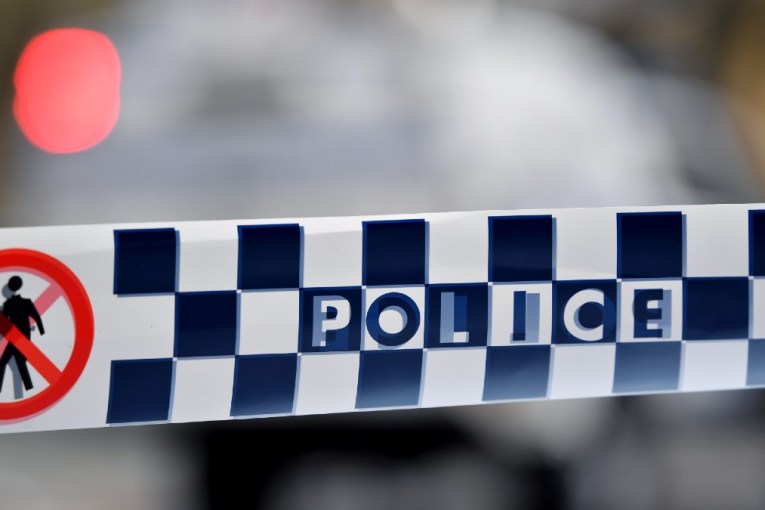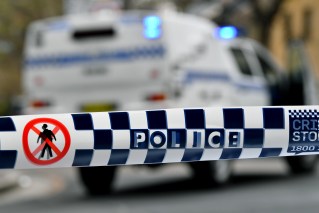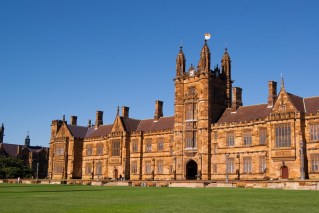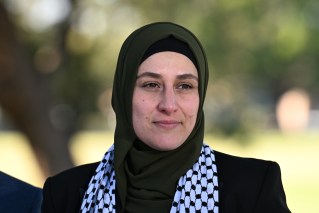Premier rules out pill testing after another drug death at Sydney festival


A teenager died and three other people are fighting for life. Photo: Instagram/ eventshsu
The New South Wales government won’t budge on pill testing after another suspected drug death at a Sydney dance festival.
A 19-year-old man died and three other people are critically ill after suspected overdoses at Knockout Games of Destiny at Sydney Olympic Park on Saturday.
Premier Gladys Berejiklian again ruled out pill testing.
“Unfortunately, we know that pill testing won’t work because it’ll give people a green light to taking substances, which in the end could still kill them,” she told reporters in Sydney on Sunday.
The Take Control campaign from the Ted Noffs Foundation released a statement, saying young people would continue to die without pill testing.
“In responding to tragedy we must sometimes face hard truths – drug taking is happening,” Ted Noffs Foundation CEO Matt Noffs said.
“Decades of [a] punitive approach where we arrest young people has not worked. It is time to take practical steps to make parties safer for our kids.”
South West Metropolitan Region Commander, Assistant Commissioner Peter Thurtell said police would continue efforts to stop drug use.
“Police and emergency services continue to send warning messages about illegal drugs, and many festival-goers are choosing to ignore them,” he said.
“We will continue to have a strong presence at festivals and dance parties with the wellbeing and safety of attendees our No.1 priority.”
An expert panel commissioned by the premier after two drug deaths at Defqon.1 festival in September was barred from considering pill testing.
It recommended introducing a new offence to jail drug dealers if someone dies from a drug they sold them, and trialling on-the-spot fines for possession at music festivals.
The panel was made up of Police Commissioner Mick Fuller, Chief Health Officer Kerry Chant and Philip Crawford, the chair of the Independent Liquor and Gaming Authority.
Ms Berejiklian on Sunday said she was beside herself that young people weren’t getting the message.
“Of course we want young people to have fun but don’t take an illegal substance. It can kill you,” Ms Berejiklian said.
“That’s why we took the measure to increase penalties for people supplying these illegal substances to a maximum of 20 years.”
NSW Labor promised to hold a drug summit in 2019 if the party is elected to government at the March state election.
“There needs to be a broader approach to tackling the scourge of drugs,” opposition health spokesman Walt Secord said in a statement on Sunday.
The 19-year-old man died in Concord Hospital about 4.30am on Sunday.
Mr Thurtell said the 19-year-old was found in a distressed state at a railway station near the festival.
“[This is] another senseless death of a young person as a result of taking drugs at a dance party,” he said.
Police will prepare a report for the coroner on his death.
Two women, aged 19 and 25, and a man are in critical but stable conditions at Westmead Hospital.
More than 18,000 people attended the event.
Police officers issued 69 banning notices and conducted more than 200 searches, with 62 people found in possession of drugs.
Five people were charged with drug supply offences, including an 18-year-old woman who was allegedly found with 390 MDMA capsules.
She is due to appear at Burwood Local Court on Thursday.
A 25-year-old man appeared at Parramatta Bail Court on Sunday for allegedly taking 145 MDMA capsules to the festival.
What is pill testing?
Mr Noffs said pill testing was “not a silver bullet”.
“But it’s a good solution in the face of kids dying and being harmed.
“As it stands, young people can get drugs easily, but don’t know what they are taking.”
The Australian-first pill testing trial at Canberra’s Groovin The Moo festival this year, allowed by the ACT government, caught two potentially deadly samples.
Punters brought their drugs to the STA-SAFE laboratory tent, where medical staff and chemists took a sample for analysis.
Information on the purity of the drug and its contents was then provided to the users, who were reminded of the inherent risks of drug taking.
An amnesty bin was on site for drugs to be voluntarily ditched and destroyed.
Of the 85 substances sampled, half were pure MDMA and half had been cut with products, such as sweetener and paint. Two of the samples were potentially deadly.
-with AAP








